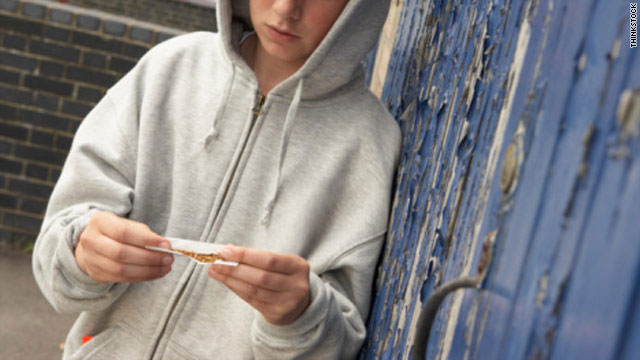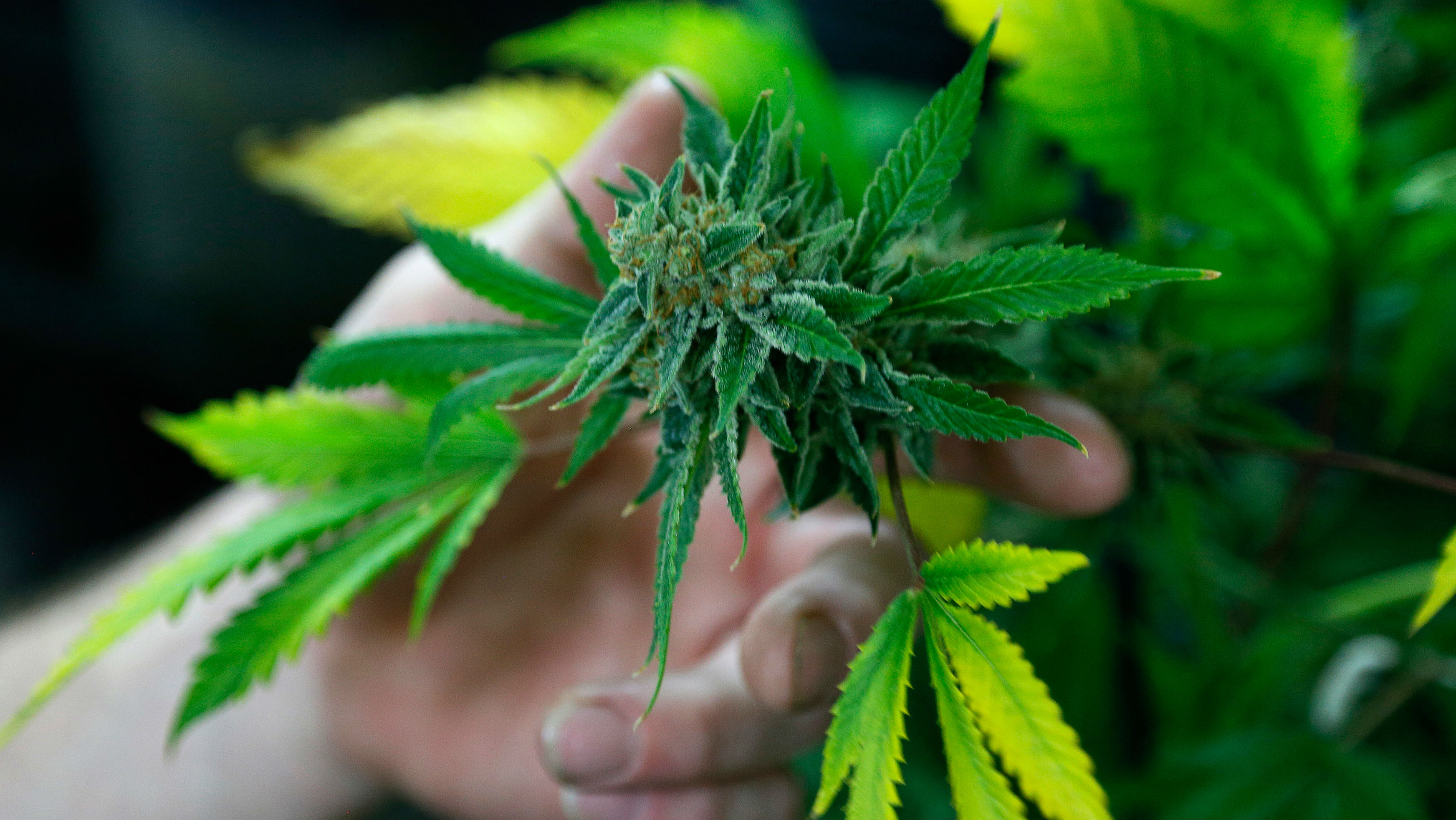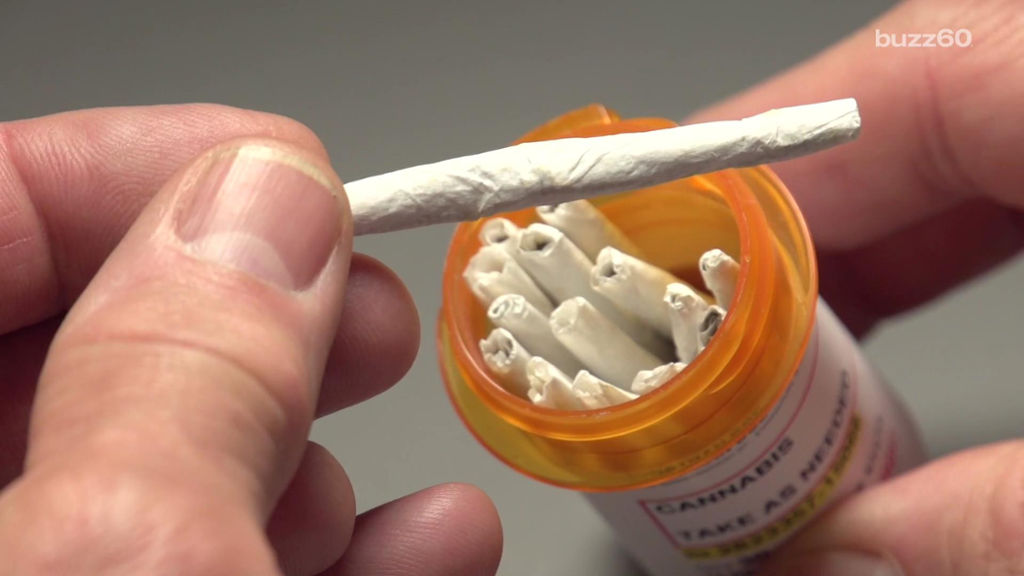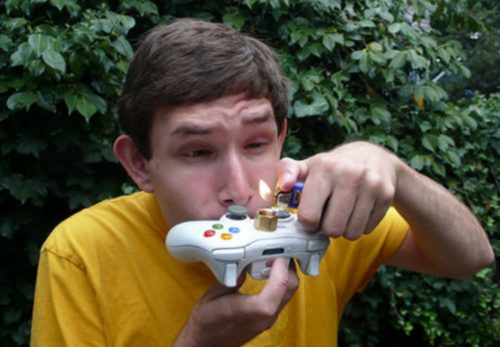Marijuana: Test What You Know
Yea, I know there have been some reports about possible “benefits” of smoking Marijuana but you have to realize that I’m from THE generation where Leary convinced millions of gullibles to indiscriminately use drugs of all kinds with the sweeping generality: “look man, it don’t hurt nobody if I do it!”
That was looooong before the goofball that told me that had absolutely ANY proof of what he was saying… one way or the other. NOW we do!
Marijuana: “It don’t hurt nobody”—Who the hell are you kidding?
IT IS HURTFUL, pure and simple! But, now as then, the gullible are seeking to justify their own choices and addictive habits by ignoring evidence and sensationalizing misinterpretations of scientific research.
With all the brain-dead politics going on around us about the subject, I’ve been wracking my mind over how to write an article on the so-called “medical marijuana” research WITHOUT merely adding fuel to the fire.
Marijuana: “Medical” or Otherwise
Let’s see what you know
Look, I’m not going to talk anything about opinions, beliefs or religious prohibitions below… not even morals. I only want this record to be about proven facts, as much as we can know them.
The questions, answers, explanations below are results of scientific research and only where the statistics are good enough to leave little doubt.

I’ll tell you where they WON’T come from: the internet, which even the most quick, undiscerning perusal makes one sick with all the blatant lies and mistruths about marijuana use.
Some well controlled studies on VERY SPECIFIC patient groups have showed a correlation with chronic neuropathic pain and medical marijuana; but, only in very specific instances. There is still NO evidence that ONE CAUSED the other’s benefit, only that they are statistically associated.
With even a greater statistical relationship however is that MARIJUANA use IS associated with PSYCHOSES and SCHIZOPHRENIA (p 0.001). Now that we’ve had time to do the studies, they seem to show very real association with very real and bad outcomes as well as a few limited benefits.
What is NOT ASSOCIATED WITH REALITY and evidence is marijuana’s LEGAL STATUS and legislation!
Generally Use
So, here is the first question to see if you know and understand the truth. When you think you know the answer, hover over the grey box and read the evidence and correct answer.
Which of the following four statements is accurate about using marijuana?
A: The known effects on estimating time and distance and impairment of attention and short-term memory wear off within 24 hours;
B: actual morbidity from marijuana dependence has still not been documented and verified;
C: A causal and temporal relationship of marijuana use to the development of psychosis has been established;
or, D: Medical authorization for marijuana use does not protect against job loss
A: NO. Using simulated driving and flying tests, the fact is that cannabis has a PROFOUND EFFECT on time/distance perception, and CAUSES IMPAIRMENT of attention and short term memory which are still discernible by testing LONG after 24hrs
B: NO. Marijuana use DOES produce dependence and IS associated with morbidity. There is observable impairment in occupation and social functioning as well as evidence of loss of brain grey matter, particularly in adolescents whose normal growth and development is still trying to “mature” their nervous systems. There is also increased risk for cardiovascular events.
C: NO. This is the “gotcha” question that fooled many physicians taking the quiz. Good statistical evidence shows that marijuana use IS ASSOCIATED with psychotic symptoms to a significant extent. The controversy is only over the fact that statistics don’t show “cause.” The claim that it may just be “coincidental” or that psychotic people are merely “self-selecting” marijuana because they feel better—is getting weaker the more we study it however.
D: (correct answer) Less than half of physicians taking the quiz realized that legislation permitting “medical marijuana” does not protect against job loss. So far the legislators haven’t acted to protect poor job performance or social disruption of the workforce, which is often seen.

I should explain that marijuana use can be (and often is) co-morbid with other psychiatric disorders which jumble thought processes, perception or feelings of anxiety. This, in fact, occurs not-infrequently and there is a diagnosis code (cannabis-induced disorder) a doctor should use when marijuana is believed to be the causative agent.
Marijuana For Specific Diseases
Let’s switch gears a little and discuss the limited “use cases” for “medical marijuana.” A tremendous, wide-ranging study about the “weeds” medical usefulness has just been completed (2017) by the National Academies of Sciences, Engineering and Medicine (NAS).
According to the NAS study, there is evidence that which of the following claims is accurate?
A: marijuana use is effective in patients with epilepsy and amyotrophic lateral sclerosis symptoms;
B: Multiple sclerosis spasticity is among the conditions with the strongest data supporting marijuana use;
C: there is a decreased incidence of suicidal ideation and suicide attempts in patients with bipolar disorder; or,
D: Marijuana use gives no extra risk of depression or social anxiety
A: NO. There was NO EVIDENCE that it was beneficial for other conditions including: cancer, irritable bowel, epilepsy, Lou Gehrig’s disease (ALS), or injury-related spasticity.
B: (correct answer) Data was “strongest” in supporting chemotherapy-induced nausea and vomiting, chronic pain and MS spasticity symptoms. Whether they do so better than other readily available soporifics and medicines is not proven.
C:NO. To the contrary, INCREASED suicidal ideation and suicide attempts was documented as well as evidence that marijuana use actually made both mania and hypomania (bipolar depression) worse.
D: NO. Marijuana use gives INCREASED risk for schizophrenia, other psychoses and social anxiety disorders; and, although the statistical relationship is lesser, depression as well.
My guess is that the actual evidenced-base usefulness of the stuff is a whole lot less than you thought. It sure isn’t anywhere close to what all the crap on the internet claims.
Pharmaceutical Cannabis
The American Academy of Neurology (AAN) has also reviewed “medical marijuana” in depth for use in neurologic conditions. which of the following is accurate regarding the efficacy and use of medical marijuana in treating neurologic conditions.
Which of the following is true about the use of medical marijuana products to treat a specific condition?
A: Pure cannabidiol (CBD) pills has better evidence than tetrahydrocannabinol (THC) pills in treating multiple sclerosis (MS);
B: the risk for serious psychopathologic side-effects of these drugs is 5%;
C: evidence demonstrates that oral cannabis extract (OCE) alleviates levodopa-induced dyskinesias; or,
D: Strong evidence shows that synthetic THC pills alleviates symptoms in Huntington Disease, Tourette Syndrome and cervical dystonia.
A: (correct answer) CBD pills have the strongest evidence of benefit in MS. Evidence is not so strong for THC pills.
B: NO. There is strong evidence that about one in every hundred patients develop serious psychopathologic effects, about 1%, but information about how much of that is reversible is not known.
C: NO. Evidence shows that OCE pills do not alleviate levodopa-induced dyskinesias.
D: NO. Evidence does NOT show that any form of cannabis reduces the frequency of seizures; nor does it support that synthetic THC pills alleviate either Huntington disease, Tourette syndrome or cervical dystonia.

I hope you’re getting the picture that the clinical usefulness of medical marijuana, while there, is only for very specific instances in specific patients with very specific conditions; certainly not something that falls under legislative bodies and definitely not in the bloated numbers we see hanging around the “medical marijuana” bars obtaining “product.”
Medical Marijuana Side-Effects
Like everything else, marijuana (even “medical marijuana”) has its side-effects. In the case of marijuana these side-effects involve the brain! And personality.
The Diagnostic and Statistical Manual of Mental Disorders, Fifth Edition (DSM-5) is the standard for categorizing conditions that have been caused by cannabis—legal or otherwise.
Which of these is accurate?
A: A low heart rate within 2 hours of using is diagnostic of cannabis intoxication;
B: To say that a sleep disorder is caused by cannabis requires that it not only occur during the delirium caused by cannabis;
C: To say that a patient is in sustained remission (not cured) from a cannabis-caused side-effect requires that no symptoms have occurred for 6 consecutive months; or,
D: Unexplained weight gain is one diagnostic criterion of withdrawal from using cannabis.
A: NO. Cannabis intoxication produces a high heart rate not a low one—in addition to Increased appetite, Dry mouth and bloodshot eyes.
B: (correct answer) To say that it’s a real sleep disorder caused by cannabis, the debilitating disturbance should not only occur when the person is “stoned”
C: NO. Sustained remission from a Cannabis-caused disorder requires that they be symptom free for 12 months, a full year—except for craving.
D: NO. In order to call it cannabis withdrawal, a user must experience three of these within a week of quitting: irritability, anger or aggression; nervousness or anxiety; insomnia or nightmares; decreased appetite or weight loss; restlessness; depressed mood; and, abdominal pain, shakiness/tremors, sweating, fever, chills or headache.

More than in any other condition, the patients I’ve seen who’ve had a side-effect of “medical marijuana” seems to completely take them by surprise. It’s as if they thought that somehow the process of making marijuana “medical” removed all risk—it does NOT!
And you may think that “one in a hundred” is pretty low, and is sorta’ is; kinda’ like getting lung cancer from cigarettes I guess. BUT, the problems are just SO devastating; and often incurable.
Marijuana Testing (mythbusting)
Now to end off this discussion, I just must include the answers to the questions physicians are most often asked: “tell me about marijuana tests.”
Which of the following is accurate about marijuana laboratory testing?
A: You can’t detect cannabinoids in the urine after 5 days;
B: There are more false-positive tests than false-negative tests detected for cannabis;
C: To detect and interpret effects of cannabis doctors should use blood tests; or,
D: Urine “immune tests” correlate with the amount of cannabis used and the degree of its effects on a person.
A: NO. Five or so days is the “normal” urine-positive period—for ONE TIME USERS. Cannabinoids are fat soluble so anything more than rare use will begin to store in the fat and be slowly released back into the urine longer after each use. It’s not uncommon for a user to test positive for up to a month after stopping.
B: No. Urine immunoassay tests actually give more false-negative results than false-positives (but both are very, very rare with the tests in use these days)
C: (correct answer)Blood samples do measure levels of THC and are the preferred method for interpreting a patient’s symptoms
D: NO. Using “just a tiny amount” makes no difference. Urine tests correlate with prior exposure and not with the amount used or how “high” you got.
So, what do you think? Did any of this surprise you?
5 Posts in Marijuana (marijuana) Series
- What It's Good For – 12 Oct 2017
- Medical Marijuana – 4 Oct 2017
- Medical marijuana, test what you know – 25 Sep 2017
- Prenatal Marijuana & Brains – 21 Sep 2017
- Marijuana Series: Intro/Index – 20 Sep 2017

